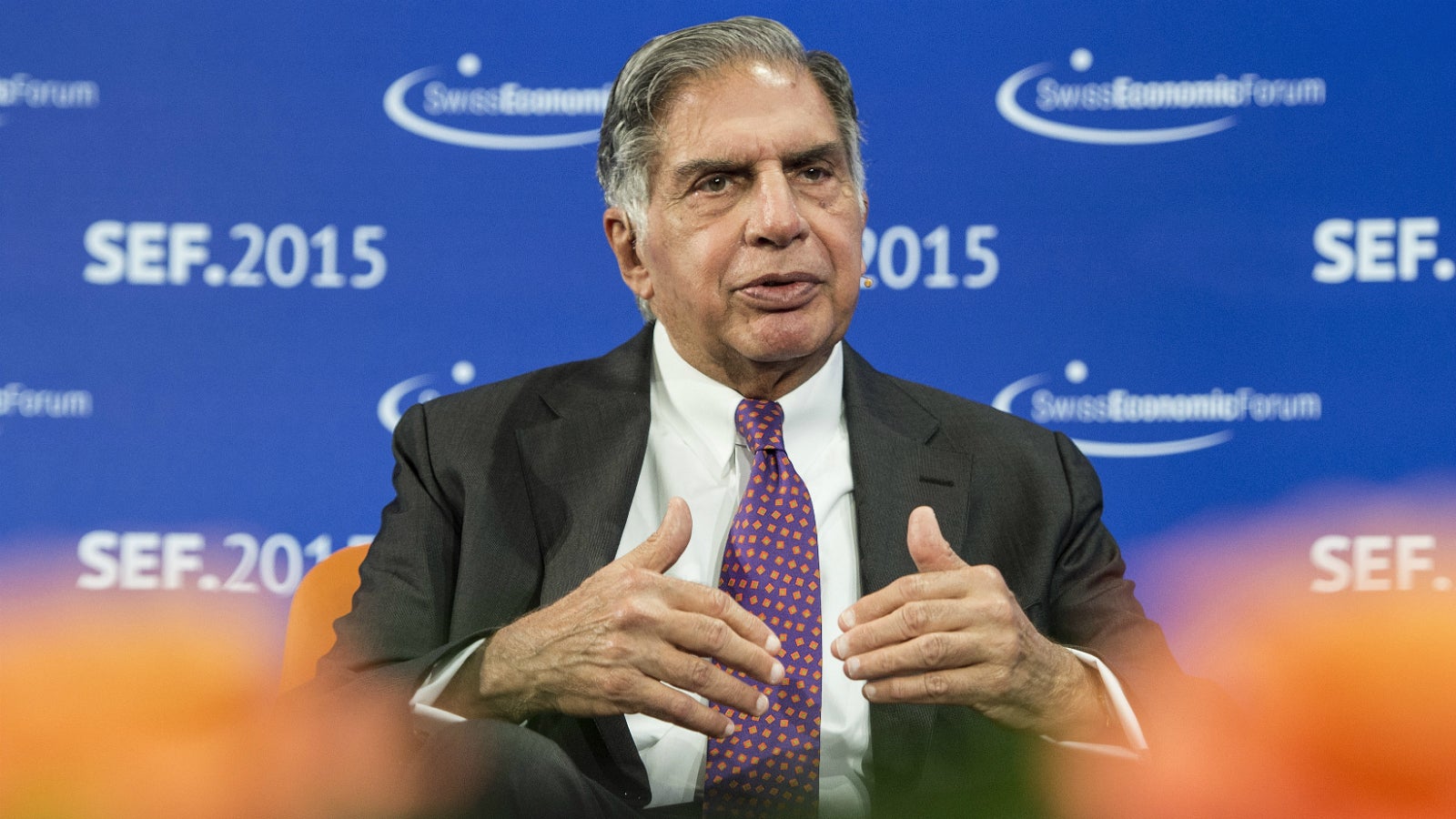If Ratan Tata was a 26-year-old entrepreneur…
During his five-decade-long career, Ratan Tata has seen and run traditional businesses ranging from salt to steel, information technology to automobiles. At 78, he has also managed to reinvent himself from a storied industrialist to one of the most active participants in India’s young startup ecosystem—with over 25 investment (and counting).


During his five-decade-long career, Ratan Tata has seen and run traditional businesses ranging from salt to steel, information technology to automobiles. At 78, he has also managed to reinvent himself from a storied industrialist to one of the most active participants in India’s young startup ecosystem—with over 25 investment (and counting).
But what if the Tata Group’s chairman emeritus turned entrepreneur today?
At an event in Bengaluru today (Feb. 05), investment firm Kalaari Capital’s managing director Vani Kola asked Tata just that.
Edited excerpts:
If you were 26 years old and decided to jump into entrepreneurship, what kind of ideas would you go after?
I think some of us have ideas all the time. For me, for example, very often ideas come when I see something not working well. And I think that’s probably what most people do. You have enough of a solution-orientation to sit down and say ‘how can this work better or faster or less expensively’?
There are those of us who leave those thoughts in our heads, and the others who try to build an enterprise around that. Once you decide that, you have to put flesh and blood behind it, in terms of funding, getting a team, etc.
What would be the defining core principle on which you would form your company?
Partly due to my involvement in philanthropy… I am always excited when an idea can bring prosperity to a part of the community or enhances the quality of life of a segment.
The other is where you do something that’s a game-changer. If you find that your idea is changing the way people live, think or sustain themselves—this is extremely invigorating.
What would you look for in an investor?
The investor in some way is a talent scout in a music company. The scout intuitively feels that this group is really going to go (far) and he can’t define why he is saying that.
I think one looks for an investor who has a similar sort of excitement over what one is trying to do and is ready to not only risk his money but participate in the journey…
What would be your answer to questions like: How much money to raise? How fast should I grow? Where do I balance growth and profitability?
Companies that I have looked at have grown at rates that I couldn’t possibly believe could happen… Can those growth rates be sustained? Because you can have high burn rates initially and then it may taper off… So that’s a rate and pace that I am not familiar with. It’s exceedingly high for someone coming from conventional industries.
But again, one has to be humble because there are some companies that do this and sustain this… and there are others that fall and burn out much faster.
Would you create a brand for yourself as a CEO in a way that it is inseparable from the company?
I am a very shy person. You are giving me a lot of visibility. So I wouldn’t want to build my brand. There are some people who inevitably leave their personal brand on a company, and it works for some and it doesn’t work for others.
If there is a great offer on the table, how will you decide if it’s time to sell your startup? Or would you want to focus on building it?
The only way I can address this is to give you a living example. When I took over the chairmanship of Tata Group, the media was rife with statements like, “Tatas have 80 companies and there’s no focus.”
So I started to put together a plan of rationalising the group, which meant getting rid of some of the businesses. Among businesses that seemed to stand alone was the toiletries business, Tata Oil Mills Company.
So, I negotiated a very dignified sale to Unilever, which gave the shareholders a very good stock to hold. And we had a standstill on getting rid of any employee for three years. I thought I had done a terrific thing.
But my God, the next day, the media descended on me, the stock market descended on us. I had let down employees who were second or third generation. And with that, very quietly, my rationalisation plan disappeared.
So I feel there’s no easy way to answer this question.
So if your startup is successful, how do you party or celebrate?
The one moment that I had, which would be my moment in the sun, was the launch of the Nano—looking at the positive part of it. (Laughs)
We launched the car at the auto expo in Delhi and that launch itself was a tremendous moment. I drove the car on to the stage, which turned out to be almost a disaster, because as I drove out I realised there were no lights, and where the stage stopped and where the audience started was not visible.
In those moments of apprehension, there was a creative glory, because in the 100-odd years of the group, there wasn’t any one significant project or product that elevated the group in terms of visibility than this one occasion.
After that, both in terms of the special lady in West Bengal who made things change, etc…that was the long downhill slide. But that particular moment was a terrific moment for anybody’s inner feelings.